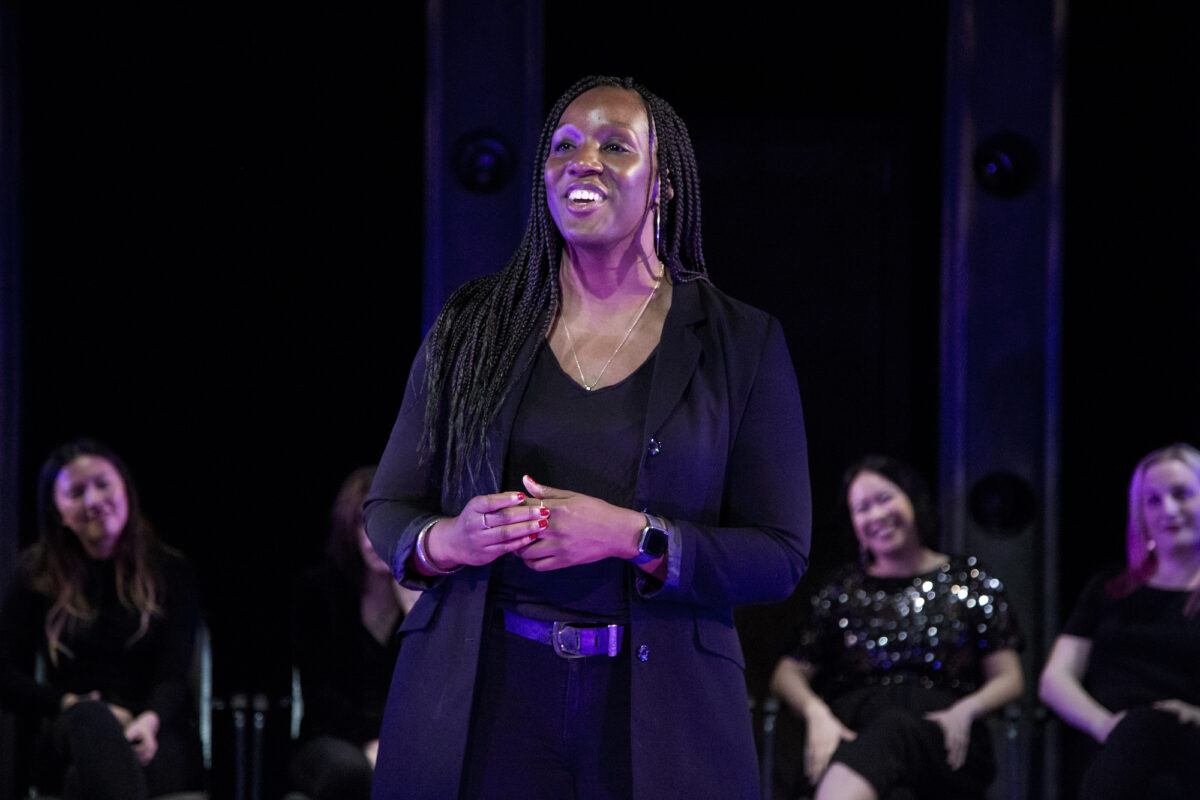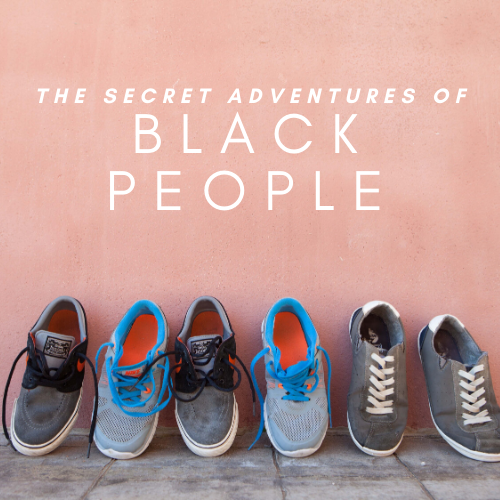Listening to the first season of Nichole Hill’spodcast The Secret Adventures of Black People is like overhearing a conversation on the subway. Words float in the air, ready to be caught by a passerby, but are largely ignored by the commuters. If the words are grasped, they are held up like a mirror. There is a sense of vulnerability recognizing the reflection in the mirror of others’ experiences. By listening to the podcast, the podcast echoes back.
The podcast, hosted, created, and produced by Hill, released its first eight-episode season in July. The episodes — most just over ten minutes long — spotlight intimate moments of everyday life as a Black person. The immersive narration and sound design plunge you into the middle of conversations between Hill’s close friends and family. There is no linear beginning or end — each episode ends yet the stories go on. Just like the conversations of people on the subway fade out of hearing and continue on without the eavesdropper.
“You get to be a voyeur and peek in on these people that suffer, suffer, suffer, but also go home and live rich full lives— do little things, do big things,” Hill said.
The podcast quickly gained a much larger audience than the group of close friends and family Hill expected. The Secret Adventures of Black People was featured in The Washington Post and on Spotify’s Fresh Finds Podcast List this fall. After its summer release, other podcasters reached out to Hill for help on their own shows. Now Hill is currently working on season two, expected to be released this February, while working as a full time freelance podcast producer.
Hill said she never anticipated that her two-year passion project collecting audio stories would be released as a podcast during mass protests against racial injustice and police brutality. Nor did she expect that she would lose her job because of the pandemic the same July day that she launched the podcast. She had been working in nonprofit fundraising for ten years and losing that source of income encouraged her to throw the podcast out into the public eye.
Hill had been an avid podcast listener for a decade and worked on podcasts like The Colored Girl Beautiful and NPR’s Invisibilia as a producer and story editor. She has coached people on storytelling, but this podcast is not how she would advise someone to tell a story.
“It’s very whimsical and when you’re telling the truth, adding that much whimzy could seem unethical,” Hill said.
The podcast’s name, “Secret Adventures of Black People”, popped into her head one day as she was cleaning, Hill said. Everything clicked from there. The name allowed Hill to be honest about making a show for Black people. When she approached the podcast through the lens that she wanted to tell stories that were relatable and were entertaining to her, it opened up all the different ways to tell a story. She didn’t have to be like NPR, but the stories could be as short or long as she wanted and they could be creative and comical and theatrical.
“I wanted to make a Black show,” Hill said. “I was at odds with myself over making a Black show that would not meet people’s expectations of a Black storyteller.” Hill was concerned the format of the show and its focus on everyday experiences might be accused of not taking Black stories seriously.

Hill said she wanted to share the different aspects of being Black that are largely ignored. In that way, the name The Secret Adventures of Black People is mainly “tongue in cheek,” Hill says, “because these are secret adventures, because no one will listen because they are not about suffering.”
“As a Black person, our greatest currency on a large scale is to share our pain. That’s how we get people’s attention, historically, how we’ve been able to get America’s attention,” Hill said. “I don’t want to do that. So mainly I want to — and that’s not to say, I don’t ever want to talk about pain﹘ but I want to lead with the everyday lives that we live.” She made the podcast for her friends and family so that they could see Black life represented in a recognizable way.
When Hill attended the protests over the murder of George Floyd by Minnenapolis police, all she could think is that George Floyd was somebody’s baby. She thought about her own mom and how she would not want her kids’ lives diminished. The podcast was a way to say, according to Hill, “here are the [Black] lives that matter.”
Hill learned how to tell a story through the community of her Black church. As a kid, she would sneak down the fuzzy blue staircase of her grandparents’ house in Maine and listen to the grown ups talk after church. They didn’t just retell what happened but spoke as if on a theater stage. A young Hill heard music in their stories.
“Black people have this kind of advantage in storytelling because of what it takes to entertain a Black audience,” Hill said.
After graduating from George Mason University in Virginia with a degree in communications, Hill served for AmeriCorp traveling the country to volunteer in communities such as those devastated by Hurricane Katerina. It was through these experiences that Hill began to recognize how Black people were disenfranchised in the country.
Growing up in a predominantly white area in Virginia Beach, Virginia, “being Back mainly felt like a bummer,” Hill said. She was one of the only Black girls in her honors and AP classes and was not aware of how Black people were treated differently. “Yeah, we got called the N word a couple times. But I was still like, I just don’t think it’s true,” Hill said.
While Hill served in impoverished communities across 40 different states, she saw not just the systematic discrimination of Black people, but met Black people who were pushing back and who were “infusing all this curiosity and all of this wonder into the experience of being Black.” She began to write down the stories from those she met, laying the groundwork for a future in storytelling.
The “final straw” that helped Hill to decide to launch her podcast happened at a steakhouse in Washington, D.C. During the protests, she said she was always “mad, angry, and hungry” so she frequented a barbecue restaurant about two miles from the White House. One day she complemented the host’s crystal necklace. He thanked her and said he was trying everything he could think of to feel protected.
Hill said tears swelled in both their eyes from that exchange. They hadn’t said much except for “I’m trying my best” and “I see you,” said Hill.
The Secret Adventures of Black People is the recognition of every part of being Black- the pain, the joy, the anger, the fear, the excitement, the boredom. It’s a way, Hill says, for her to say, “I see you.”
“I’m in this moment of my life where I can say being Black is hilarious and it’s so fun! And it’s so, even the pain of it, it’s just like, look at what we’ve endured, and we still fight and we still have hope and we still have mercy and love. And that’s a really beautiful thing. And so it’s me embracing all these different aspects of Blackness,” Hill said.
Listen to the first season of The Secret Adventures of Black People on Apple Podcasts, Spotify, Google Podcasts, or YouTube. Follow the show on Instagram or Facebook @thesecretadventuresofblackpeople or Twitter @SABPpodcast. To contact the show, email secretadventuresofblackpeople@gmail.com.







